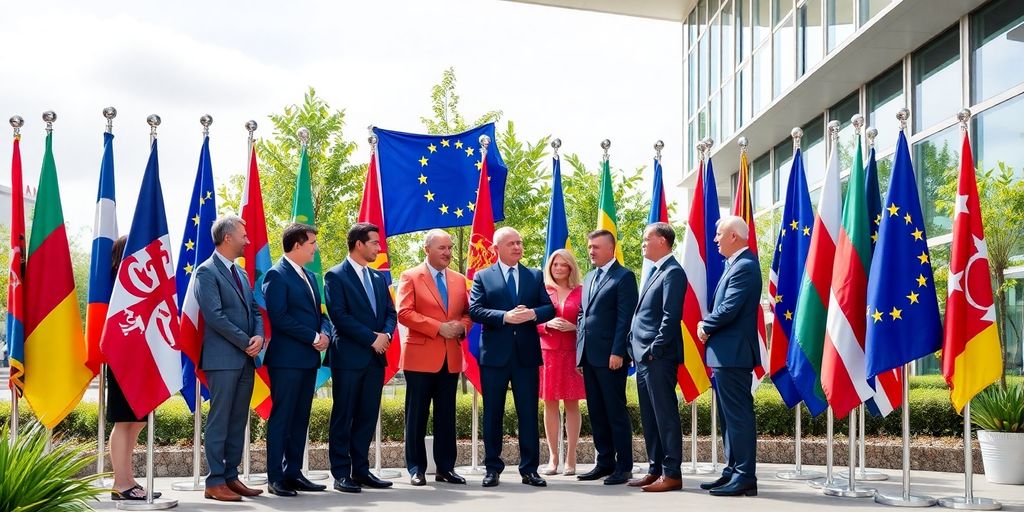The recent EU-Western Balkans Summit held in Brussels on December 18, 2024, marked a significant step towards strengthening ties between the European Union and the Western Balkans. Leaders from both regions gathered to discuss the future of peace, prosperity, and the strategic partnership that binds them, amidst a backdrop of global challenges and geopolitical shifts.
Key Takeaways
- Commitment to EU Membership: The EU reaffirmed its commitment to the Western Balkans’ EU membership perspective, emphasizing that enlargement is a strategic investment in peace and stability.
- Growth Plan for the Region: The EU’s Growth Plan aims to double economic growth in the Western Balkans over the next decade, facilitating regional integration and preparing countries for eventual EU membership.
- Addressing Hybrid Threats: Leaders agreed on the importance of countering hybrid threats, including disinformation campaigns, particularly those linked to Russia.
- Focus on Reforms: The summit underscored the need for Western Balkan countries to implement necessary reforms related to the rule of law, democracy, and human rights.
The summit, chaired by European Council President António Costa, was characterized by a renewed momentum for enlargement, with leaders expressing a collective sense of responsibility to enhance cooperation. Costa highlighted that the timing of the summit was crucial, given the current geopolitical climate, particularly in light of Russia’s aggression in Ukraine.
In her address, European Commission President Ursula von der Leyen emphasized the EU’s commitment to working closely with Western Balkan partners on two main priorities: EU accession and gradual integration into the Single Market. She announced that the Commission is preparing over EUR 300 million in pre-financing to kickstart reforms in the region.
Strategic Partnership and Future Goals
The Brussels Declaration adopted at the summit outlined several key areas for future cooperation:
- Economic Integration: The EU aims to enhance regional economic cooperation through the Common Regional Market, which is essential for closer integration with the EU’s single market.
- Political Engagement: There will be a focus on deepening political and policy engagement in areas such as foreign and security policy, resilience against hybrid threats, and cooperation in migration management.
- Security and Defense: The summit welcomed the establishment of Security and Defense Partnerships with several Western Balkan countries, reinforcing the region’s stability and security.
The leaders also acknowledged the importance of resolving bilateral disputes and fostering good neighborly relations to ensure regional stability. The absence of normalized relations between Kosovo and Serbia was noted as a significant barrier to progress.
Conclusion
The EU-Western Balkans Summit has set a clear path forward for enhanced cooperation and integration. By focusing on economic growth, political reforms, and security partnerships, both regions are poised to build a future of peace and prosperity. As the EU continues to support its Western Balkan partners, the commitment to shared values and principles remains paramount in navigating the challenges ahead.
Sources
- EU-Western Balkans Summit: Building a Future of Peace and Prosperity | EEAS, EEAS.
- EU-Western Balkans Summit: "We now have a new momentum" – European Western Balkans, European Western Balkans.
- EU and Western Balkans strengthen partnership at summit – Finnish Government, Valtioneuvosto.
- Summit in Brussels: The future of the Western Balkans is in the EU • KosovaPress, KosovaPress.
- HRT: EU’s Western Balkans summit signals renewed interest in enlargement, HRT.






